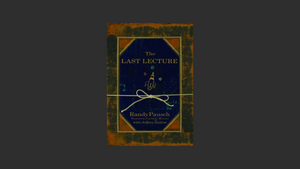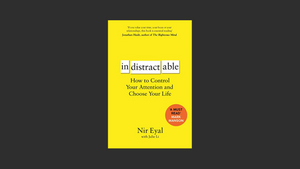This book aims to help people who read to gain knowledge do so effectively and efficiently.
The Lifetime Learner's Guide to Reading and Learning was written by Gary Hoover, an entrepreneur and avid reader. Hoover's primary source of knowledge is the physical books he reads. He claims that 80% of the knowledge he acquired from reading cannot be found online.
Hoover boasts of having a library of 57,000 books (I am slightly envious of this) and shares his method of "digesting" a book in under 30 minutes—without speed reading, scanning, or skimming the text.
The Lifetime Learner's Guide to Reading and Learning is broken down into three sections:
- How to digest, find, and buy books.
- 160 important book recommendations.
- Ideas on how to be curious and creative.
I picked up this book mainly to improve my reading and effectively gain the knowledge I needed from the books I read.
Thus, my notes will only focus on the first section: How to digest, find and buy books. Most avid readers would probably practice some of the methods outlined in the book, but for those who don't, here are the tips Hoover has outlined to help digest and remember a non-fiction book in 15-30 minutes.
Hoover does add a disclaimer that his methods for "digesting" a book may not always work for everyone, and it won't work for every book.
The First Step: Familiarizing and Understanding The Book's Content.
- Read the cover flap (for hardcover books) or front flap, as it usually contains the book's summary.
- Read the back flap (or back cover) for the author's background and how his experience or belief might impact the content.
- Read testimonials.
- Look at the publisher and publication date (this is specifically useful for specialised fields).
- Go one step further and review feedback on the book online.
Step Two: Review The Table Of Content And Indexes.
The method that Hoover introduces in this section is quite interesting.
The table of contents is essential for getting the most out of the book you are reading. Review the chapter titles and jump straight into the chapter that provides the information you seek within the text.
YOU DO NOT NEED TO READ BOOKS SEQUENTIALLY.
Hoover says, "You can go wherever you want, whenever you want. The book is your book, you have begun a conversation with the author, and you should feel free to interrupt, skip around, and ask questions at any time. If you give yourself this freedom, you will be amply rewarded."
I thought this tip was interesting.
The idea of jumping pages when reading a non-fiction book and only reading specific or relevant pages is foreign to me. I feel that this would work better when you have some understanding of a particular topic and find the book's information repetitive from books you may have read in the past. If it is a new topic being explored, I will probably read every page and chapter.
Step Three: Diving Deeper.
Pay attention to the illustrations, photos, diagrams, charts, tables, or appendices to understand the author's point of view. Hoover recommends that we "spend time on each, think deeply, draw your own conclusions before looking at the author's interpretation."
Read several pages of the book: the introduction, forward, preface, first chapter, and conclusion. These sections should give you a gist of the book's concept and the relevant information. This process cuts out reading all the fluff.
You can also go through the Index and pick the topic you want to explore in the book.
This practice will allow you to understand the context without reading the whole book.
Step Four: Remembering What You Read.
Making personal connections is critical to effectively learning from what you read.
We remember details better when we are engaged and intrigued by the information and how it connects personally to our own experience. This is the key to retaining what you learn.
Always take notes.
Whatever method works for you—pen, highlighter, or writing notes on a tablet or phone—doesn't matter. The point is to take notes of whatever interests you.
Hoover also advises against setting limits or boundaries while reading to learn. Instead, if the book doesn't serve its purpose, is repetitive, or is full of gibberish, move on to another book.
The book continues to the next section, where Hoover recommends 160 books ranging from history to business and ideas on curiosity and creativity to help broaden your mind. I especially like one chapter in the book that shares ideas on how to think differently or unconventionally.
Favourite Quotes:
- "I've come to believe that no attribute is more important to success than curiosity, though it is equalled by perseverance, self-efficacy, and passionate purposefulness."
- "Intelligence is not about knowing everything, but about knowing where to find everything."
- "I believe that curiosity, followed up with active, ambitious learning, is critical to success in every endeavour. "
- "The farther back you can look, the farther forward you are likely to see." – Winston Churchill.
- "You can't connect the dots looking forward; you can only connect them looking backwards." – Steve Jobs.
- "You cannot know where you are going unless you know where you are coming from."
- "If you compound what you learn on the Internet with the deeper, more substantive information available only in books, you will have a great chance of seriously expanding your mind and your understanding of the how's and why's of the world around you."
- "Don't be stingy when you feed your mind."
- "Wisdom begins in wonder." – Socrates
- "Creativity is connecting things." – Steve Jobs
Other Books Recommended By Hoover:
- How to Read a Book: The Classic Guide to Intelligent Reading by Mortimer J. Adler and Charles Van Doren
- How to Think Like Leonardo da Vinci: Seven Steps to Genius Every Day, by Michael J. Gelb
- A Whole New Mind: Why Right- Brainers Will Rule the Future by Daniel H. Pink
- Mindset: The New Psychology of Success by Carol S. Dweck
- Self- Efficacy: The Exercise of Control by Albert Bandura
- Walt Disney: The Triumph of the American Imagination by Neal Gabler





